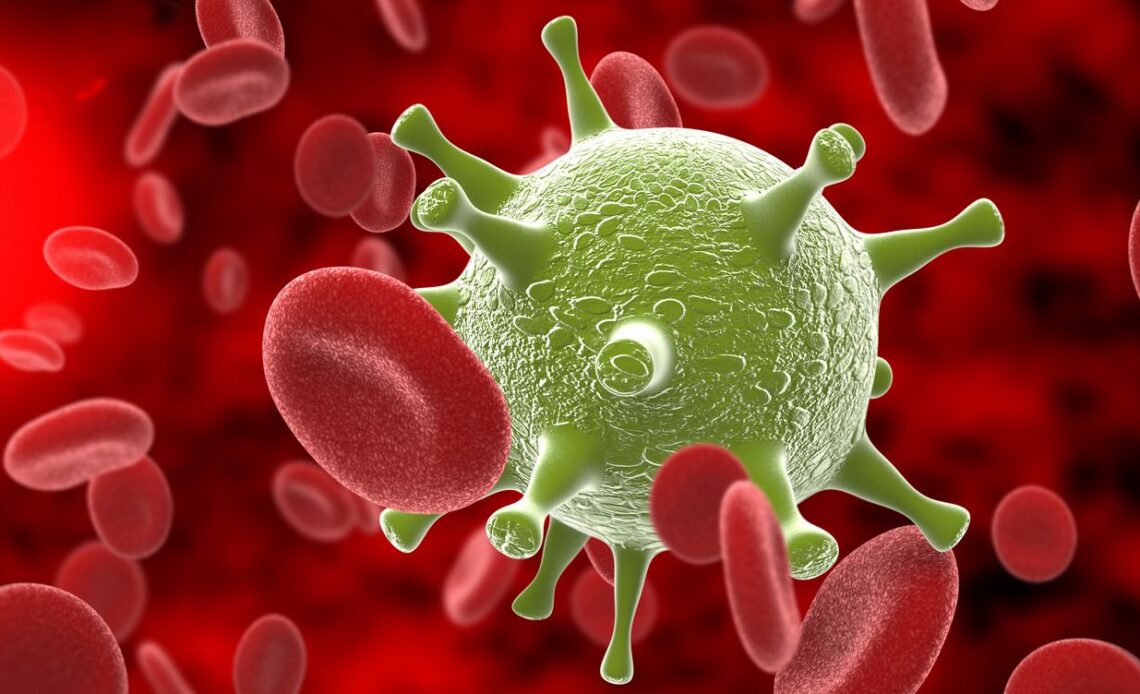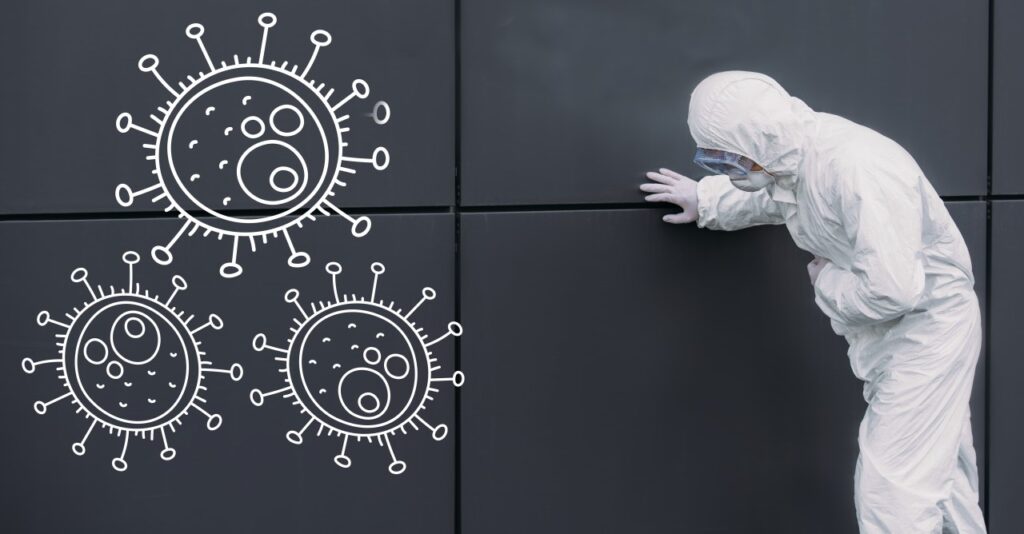
- Covid-19 changed how we lived
- Sudden loss and death were mourned remotely
- Learning was brought home, both literally and figuratively
- The impact on frontline medical workers is still to be properly understood
Above: Illustration of a coronavirus by
BitDepth#1294 for March 25, 2021
Between March 2020 and March 2021, we all went to school. As with so many educational experiences I’ve had, it wasn’t a course I’d have willingly signed up with foreknowledge of what I was getting into, but that doesn’t invalidate the things we experienced.
We’ve learned to stay home.
There was something surreal about the country in March and April of 2020, a sense of an entire country holding its breath, waiting, but afraid to exhale.
The streets were either spookily empty or thinly populated with pedestrians and vehicles.
Toss in vines and wild grass and some street s might have served as sets for a dystopian drama, the faces seen in distant windows, a grim portent underlining the surreal quiet, punctuated by the Doppler whoosh of a car passing by.
Truth to tell, it was, quite literally, all another day at the office for me. I’d been working out of a home office for a decade and half by that point, but even then it wasn’t easy.
Workspace slots had to be designed for the household management — both a teacher and a student online — as well as a nine-year-old, suddenly left to her own devices as schools scrambled to figure out the next steps.
We learned how to be virtual
The essentials of human connection were dramatically reconfigured as conversations were conducted over VOIP tools like Zoom, and the tiny rectangles of web cams turned us all into The Brady Bunch.
From the perspective of a journalist, being able to attend multiple events via recordings and to fast forward through the fluffy bits was a bitter cross-trade for the viscera of in-person cross-examination.
There will probably be a lot more virtual events for announcements that really don’t demand in-person presence, but some will also lose value as a consequence.
We learned who we were, really
The best memes at the onset of pandemic isolation were the ones with Jack Nicholson in The Shining. “Isolated with the family,” they suggested cherrily, “what could go wrong?”
I don’t recall taking an axe to any doors, though I might be misremembering some moments of frustrated anger, but Stanley Kubrick’s remorselessly eerie interpretation of Stephen King’s book as a lockdown descent into madness wasn’t far off for some.
That kind of sustained proximity can be revealing, and we weren’t ready for what it revealed.
We learned new things about learning and about teaching
For a year, I was a teacher at the tertiary and primary school level. The education ran both ways.
Supporting a child’s education when you are some distance from what they are learning means first learning how things are taught today, even if you know how to arrive at the answers.
At the tertiary level, having existing course material tested by the impersonal gauze that wreaths online interactions meant discovering what really works to penetrate student apathy and to encourage enthusiasm for learning.
If I taught anything useful over the pandemic year, it was because I’d ended up learning so much more.

We learned about sudden, inexplicable loss
After years of spotty interaction with my classmates at Trinity College in Moka, we planned a meet-up in 2019, 50 years after our arrival at the school.
Reviewing a smartphone clip I captured at our informal dinner, and a group photo I took at the top-field at the school’s grounds the next day; I found something startling. I hadn’t seen Nigel and David for four decades, but there they were, sitting next to each other, chatting in the video, then standing, shoulder to shoulder the next day in the photo.
Nigel was taken by Covid-19 early in the outbreak, his last contribution to our class WhatsApp group a selfie on a gurney wearing an oxygen mask.
David died months later, after being infected in a New York hospital while undergoing treatment for an unrelated illness.
There is a wispy quality to their loss in my mind, distant memories rekindled briefly then extinguished forever.
We still don’t understand the reality of frontline medical workers
I don’t know enough doctors, but I do know one, Rory, who’s worked the last few months in frontline care in the parallel health care system in Jamaica.
As bad as getting Covid-19 was for the young doctor — he escaped being put on a ventilator by thin margins — it paled compared to the experience of fighting to resuscitate a colleague and friend felled by post-Covid myocarditis-induced arrhythmia.
The toll is relentless. After one run of being on call for 18 days straight, he went home, turned off his phone, and collapsed into sleep.
When he woke up, he discovered that five more people had died.
He’s watched people die for a lack of ventilators, overseen care in a hospital without oxygen supply as his medical team bagged people with room air.
“There is a cavalier attitude towards the virus in the Caribbean,” he wrote in our conversation on chat.
“Even patients on the verge of respiratory collapse seem confident of survival.

